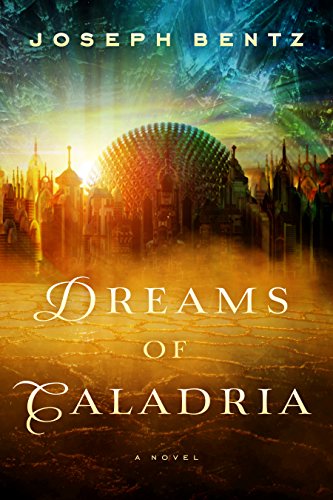Today we are happy to interview one of our new authors to Enclave Publishing, Joseph Bentz. Joseph is a professor of English at Azusa Pacific University. He earned a Ph.D. and M.A. in American literature from Purdue University and a B.A. in English from Olivet Nazarene University. His books span a variety of genres, including a fantasy novel (Dreams of Caladria, releasing this spring), three contemporary novels, three non-fiction books on Christian living, and one book/DVD package. He lives with his wife and two children in Southern California.
Welcome Joseph!

1) Everyone seems to have a “how I got published” story. What is yours?
I am one of those writers who could work on one book for years at a time and never finish it, as I keep tinkering and watch it branch out in all directions. With my first book, a fantasy novel called Song of Fire, I had trouble getting it under control. The ideas kept coming, and I kept writing. I ended up working on it for ten years. The first draft was 1,200 pages. That draft was too sprawling to be publishable, but I started over and got it down to 600 pages before I wrote a proposal and started sending it out. Fortunately for me, it ended up in the hands of a great and encouraging editor named Jan Dennis at Thomas Nelson Publishers, who pushed for its publication. The publication board said no at first, and I was crushed.
My editor would not give up. He had me do some revisions, including cutting about 150 pages, and he went back to the publication board, who finally said yes. My first novel was published in 1995. It was well-reviewed but eventually went out of print. Now, 20 years later, that novel, with a new title, new cover, and new ending (the one I originally wanted), is being published by Enclave as Dreams of Caladria. Some of those pages I had to cut, specifically an experimental first chapter, are now on my website for free: www.josephbentz.com.
2) When did you realize you wanted to become a writer?
I can barely remember a time when I didn’t want to be a writer. I have found stories I wrote going back to about fourth grade, and I probably was writing even before that. As a kid, my brain was always filled with stories. I read them, played them, watched them, and wrote them. I never outgrew that.
When I reached high school, I discovered journalism, and through the encouragement of a very good journalism teacher, Dennis Cripe, I decided to pursue writing as a career. I served as editor of the student newspaper and then majored in journalism in college at first. Then I switched to literature and went to graduate school to become a college literature professor, which is what I do now. But I have always stuck with writing no matter what else I did.
3) Tell us a little about your books.
My books span a variety of genres and subject matter. Rather than follow a predictable path, I have written whatever book I felt compelled to write at that period in my life. My first four books were novels. Song of Fire was a fantasy novel, and then I wrote three contemporary novels for Bethany House. After that, I turned my attention to some non-fiction books on topics that concerned me as a Christian. My first non-fiction book is called When God Takes Too Long: Learning to Thrive During Life’s Delays. As the title indicates, it sprang from my frustration with how much of life is taking up with waiting for things to happen and waiting for God to act. I read the entire Bible with the idea of waiting in mind. My next three non-fiction books were about other Christian issues I had struggled with, and now I am about to submit the manuscript for my fifth non-fiction book, which has the working title, Nothing is Wasted. It is about the ways God has sprinkled redemption throughout the universe, often in places where we least expect it. My website has more details about all these books.
4) What are some of the strongest influences on your writing?
I have the great privilege of teaching American literature at Azusa Pacific University, so I spend my days reading and discussing some of the greatest writers in literary history. They inspire me to write. As I discuss their work with students and colleagues, I also get a chance to think about what really works—and what doesn’t work—with actual audiences.
5) How do you write? What’s a normal writing day like for you?
Because of my teaching schedule and other university obligations, not to mention all the usual demands of life, my writing schedule varies. During the school year, I squeeze in writing whenever I can between classes and meetings. An hour or two here or there may be all I get throughout the week, so I try to make the best of it. I try to write every day. During the summer, I try to keep my schedule free of teaching and am able to put in more hours of writing. Ideally, I like to write in the morning, when my brainpower is strongest and before my mind gets distracted by a thousand other things. My biggest distractions are email, social media, and other Internet goodies. I try to set all that aside during my writing times. If I’m writing a book, I work until about mid-afternoon, when my brain usually gives out. After a break, I can sometimes come back and work on smaller projects for the rest of the day.
6) What was your favorite book as a teen?
As a teen, I would discover a writer and then want to read everything I could find by that author. I went through a Hemingway phase, a Fitzgerald phase, a Tolkien phase, a C.S. Lewis phase, and probably several others that I can’t remember. I also loved Henry David Thoreau’s Walden and read that several times.
7) Describe your feelings when you opened the box and saw the first published copies of your very first book?
Until I opened that box and saw those books stacked up inside it, a part of me had trouble believing my book would ever really be published. I kept half expecting some kind of last-minute excuse or glitch that would take it all away. But then I held the book and finally believed I was an author. After that, I immediately started worrying about what readers would think!
8) What inspired you to write?
Writing for me is the most natural way to make sense of the world and to try to create something lasting out of everything I see around me. When I was in school and read some of those powerful novels that became a part of my life, I thought there could be no higher privilege than to have one of my stories end up in the minds of readers, most of whom I would never meet. That connection between writer and reader is the magic of it and makes all the struggle and work worth it.
9) In what ways does your faith impact how you approach writing?
Writing is very much a part of my spiritual life. Just as prayer, reading Scripture, serving others and being in community with other Christians are ways of drawing closer to God, writing also is a way of searching life’s deepest mysteries and approaching the toughest questions. There are a number of spiritual issues I’m not sure I ever could have worked through without writing about them. I’m not saying writing is how everybody should approach those issues, but for me, writing is a way of figuring things out.
10) What can you tell us about any future releases you have planned?
I am putting the finishing touches on my next non-fiction book manuscript, which I am about to turn in to my publisher, Beacon Hill Press. The working title is Nothing is Wasted. The idea is that God has sprinkled redemption throughout the universe in ways that are easy to overlook. Although life is filled with pain, I believe there is also a countervailing force at work in the world. In the midst of all this loss beats a relentless pulse of redeeming love and good that pushes through the chaos and pain. It does not obliterate the pain, but it does not allow it to be wasted. Good is wrenched from it, like a gold nugget pried from deep underground. I examine these redemptive hints in a wide variety of places—in tragedy, in popular entertainment, in nature, and elsewhere.
11) What have you learned about yourself through your writing?
I have learned that I, like almost everybody else I know, am more complicated than I may appear to be. I am hard-working but also lazy, deeply committed but also indifferent, altruistic but also selfish, idealistic but also cynical, and the list goes on. When readers ask which of my characters in a book represents me, I have to answer that in a sense, they all come from me, whether they’re heroes or villains or someone in between. Writing forces me to explore the even the most hidden, painful corners of my life that otherwise I might prefer to ignore. But it also allows me to find the hidden joys.
***
Thank you, Joseph, for joining us today! And don’t forget to check out his upcoming fantasy release: Dreams of Caladria.
And is where you can find Joseph Bentz online:
Website/blog: www.josephbentz.com
Facebook: www.facebook.com/joseph.bentz
Twitter: twitter.com/JosephBentz
Goodreads: www.goodreads.com/author/show/384544.Joseph_Bentz



